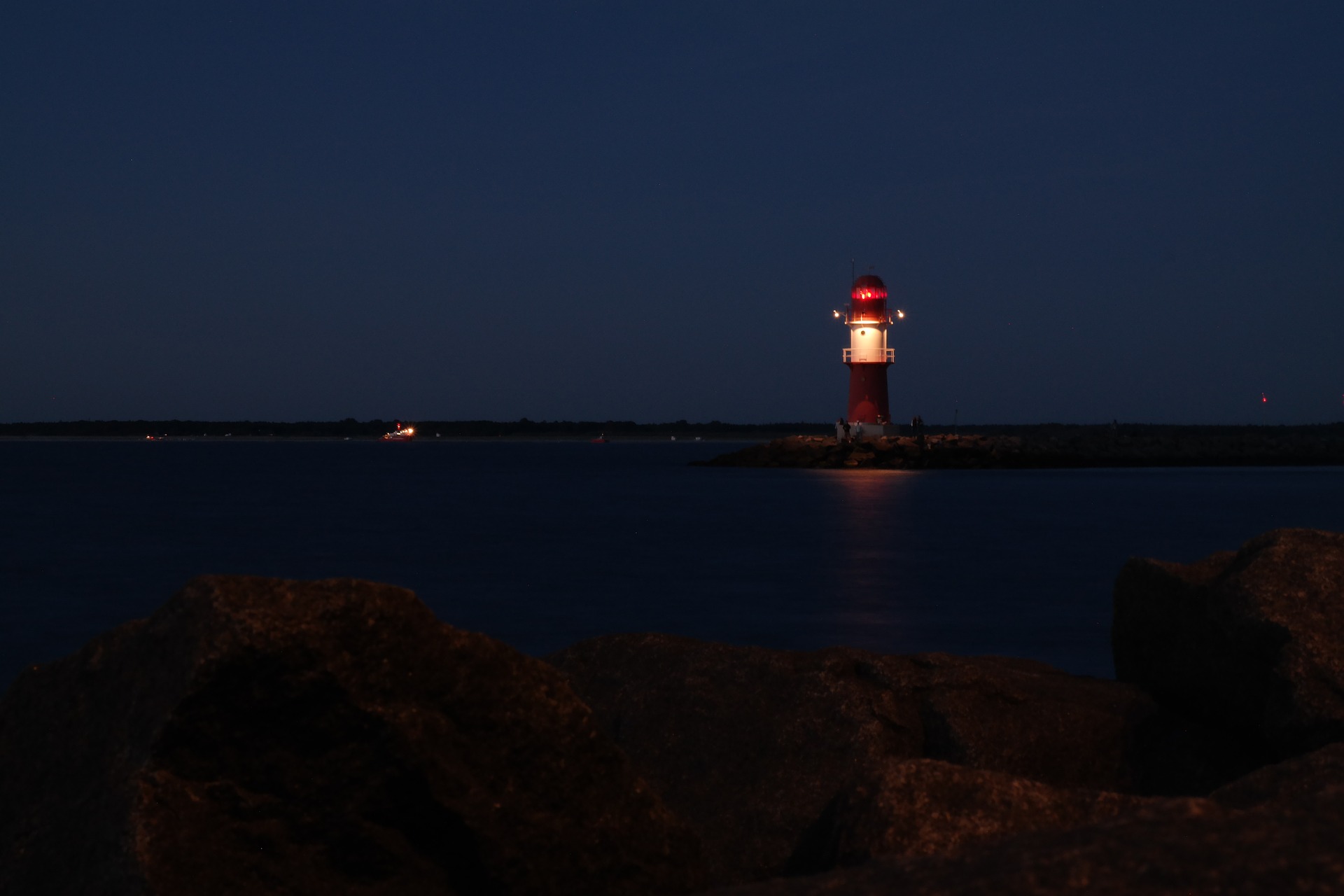If you stare hard enough, you’ll see whatever you want to see.
Sailing at night is disorienting. You lose sense of direction, depth perception and perspective. A white light on the dark horizon might be a high-powered navigational beam on a tower 20 miles distant – or it could be an 8-watt bulb on the transom of a boat 100 yards away.
Navigational charts do what they can to remove such quandaries. For example, if you’re sailing toward an area of rocky, shallow waters, the chart will tell you how it’s marked – by a buoy, perhaps, with a red light that flashes every four seconds.
That’s simple enough; just look for the red flasher and steer clear of it.
But if you’re sailing near shore, there will be lots of lights, of varying intensity and color. There may be other boats in the vicinty – each with its own set of red, green and white running lights. And there may be dozens of lighted buoys marking a variety of other nearby hazards and inlets. Plus there are lights on shore.
Talk with sailors from any large city and they’ll be able to tell you about some unfortunate soul who ran aground after mistaking a 4-way stoplight for a navigational aid.
So if you’re looking for that red 4-second flasher to steer around, you’ll put the whole crew to the task of identifying it. And they’ll stare at it until every light starts to look red and seems to be flashing at roughly 4-second intervals.
At that point, if you’re lucky, someone will pop their head up from below deck and see things more clearly. This is the person who will usually point and say, “There it is,” while everyone else blinks three times and echoes, “Oh yeah.”
What’s the lesson in business? You need to be aware of your surroundings. You need to look for problems when they’re still on the horizon and identify solutions as early as possible. But sometimes, the longer and harder you look, the tougher it is to identify the real solution among all the ideas and possibilities that exist.
Sometimes, it takes a fresh-eyed third-party to bring clarity to the situation. Or a brief respite from your search. Or failing that, simply turning the boat in a new direction to avoid the hazard altogether.
